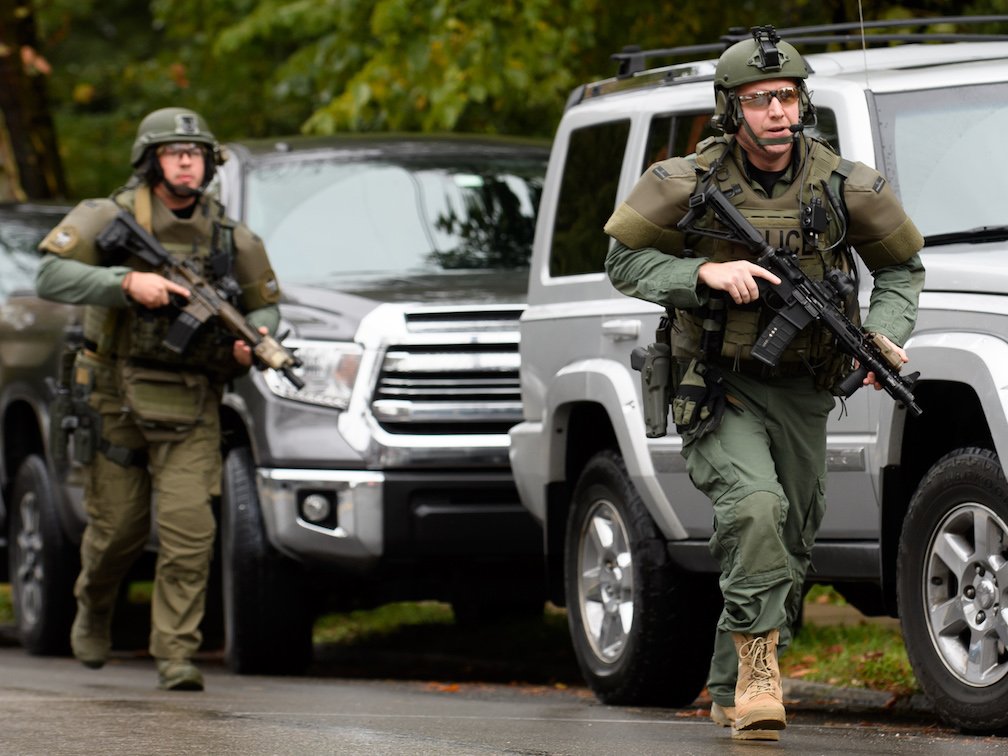- Saturday’s mass shooting at the Tree of Life Synagogue in Pittsburgh, which left 11 dead, reignited a debate about armed security at places of worship.
- Robert Bowder, who was charged with the attack, had three handguns and an AR-15, a weapon designed for war.
- It’s not clear if the synagogue already had an armed guard. Four police officers were injured.
- Synagogues often already employ armed security on major holidays.
- Armed security is more frequent in places with historic anti-Semitism.
The murder of 11 Jewish worshippers at the Tree of Life synagogue in Pittsburgh, Pennsylvania, Saturday has renewed a debate over whether places of worship should have armed guards.
It’s not clear if the synagogue already had an armed guard. Four police officers were wounded in the attack. Robert Bowers, who faces 29 charges following the mass shooting, wielded at least three handguns and an AR-15, a weapon designed for war that’s legally available to purchase and has been used in most major mass shootings in America. The synagogue did not receive any threats before the attack, according to CNN.
President Donald Trump theorised before a campaign rally Saturday that “the results would have been far better” if the Tree of Life synagogue had an armed guard inside.
“This is a case where if they had an armed guard inside they may have been able to stop him immediately, maybe there would have been nobody killed, except for him maybe,” he said.
Pittsburgh Mayor William Peduto rejected the idea, saying that it would be better to control access to guns from people who express a desire for violence. Before the attack, Bowers suggested on social media that he would take action against a Jewish organisation that helped refugees.
Read the article by Jacob Shamsian on Business Insider Australia.

